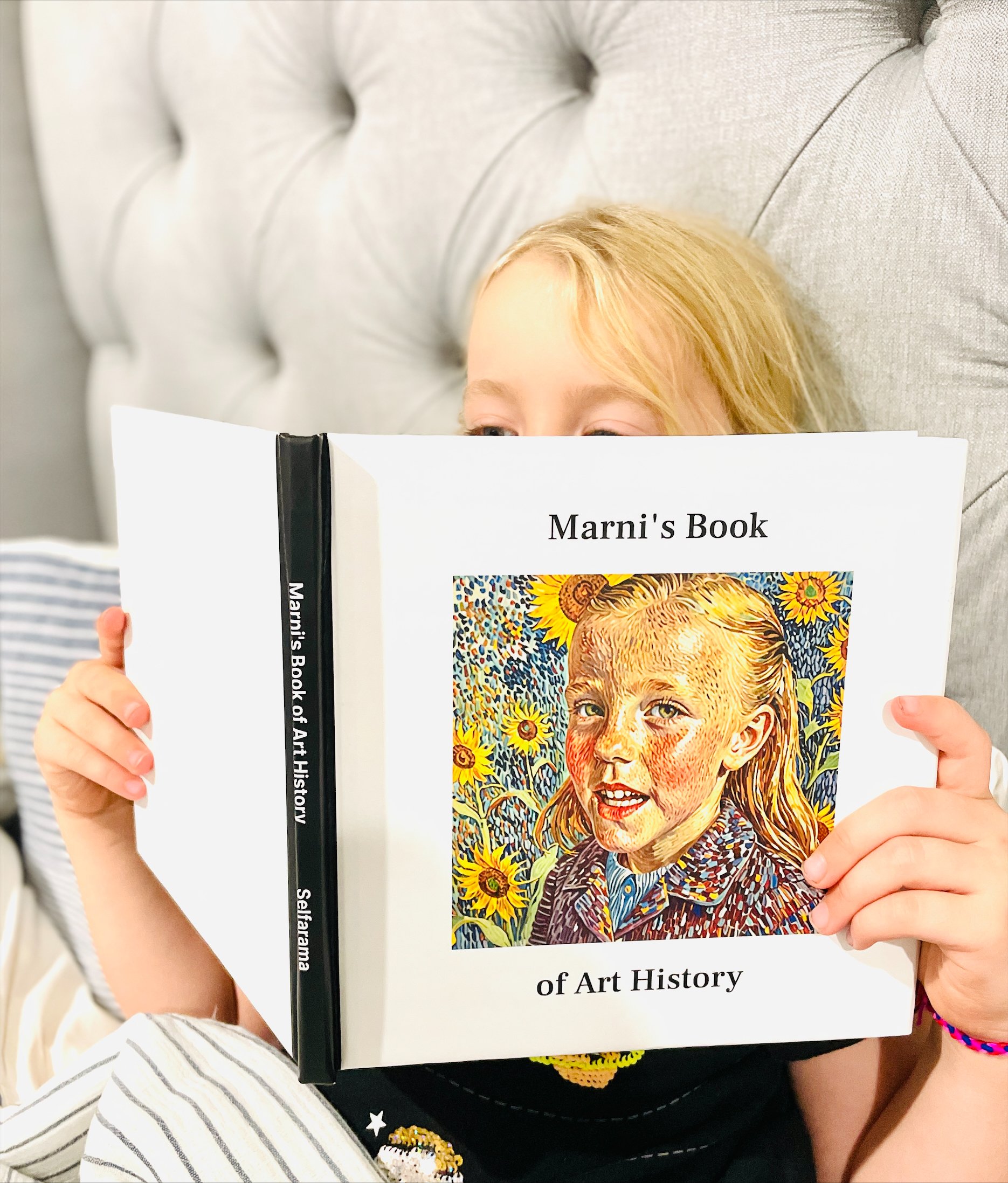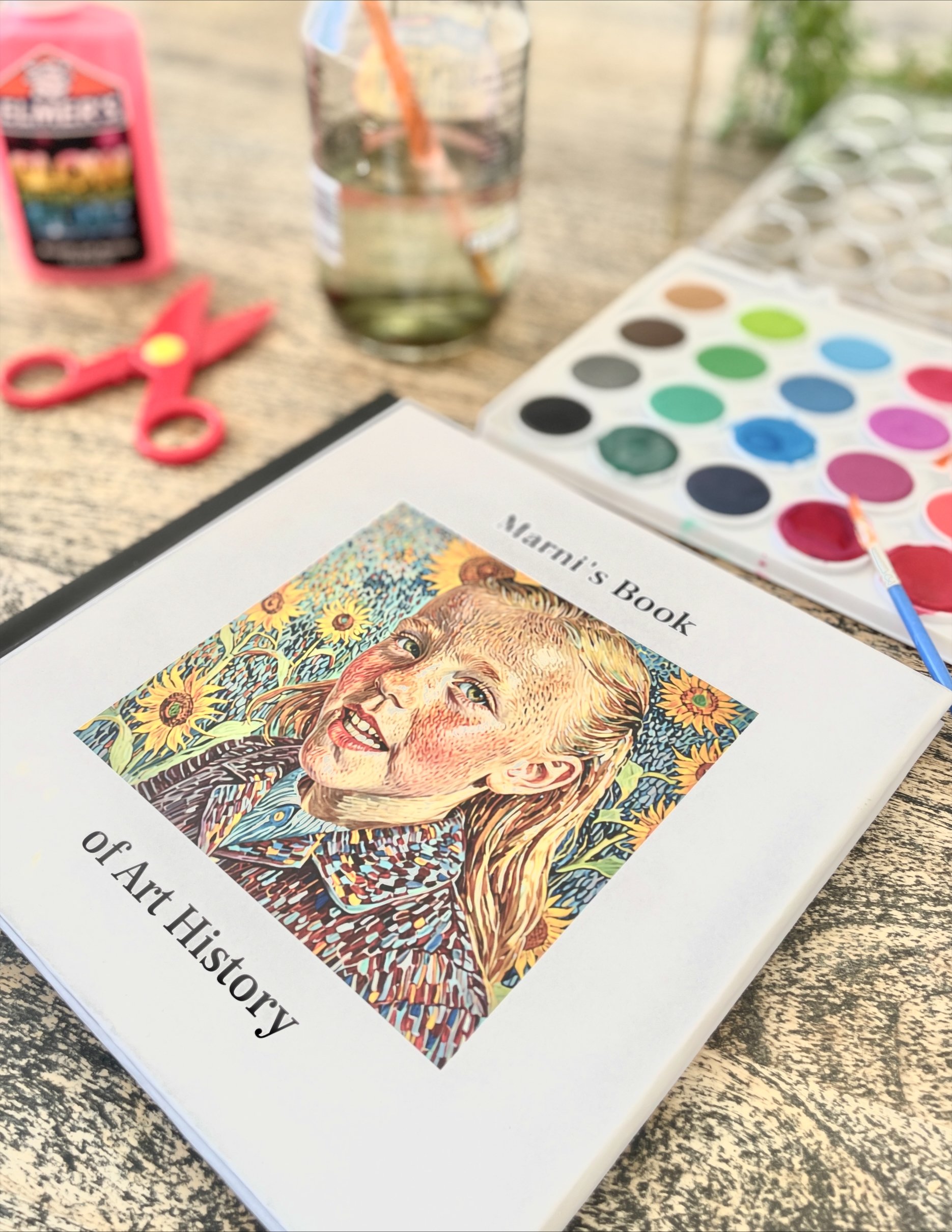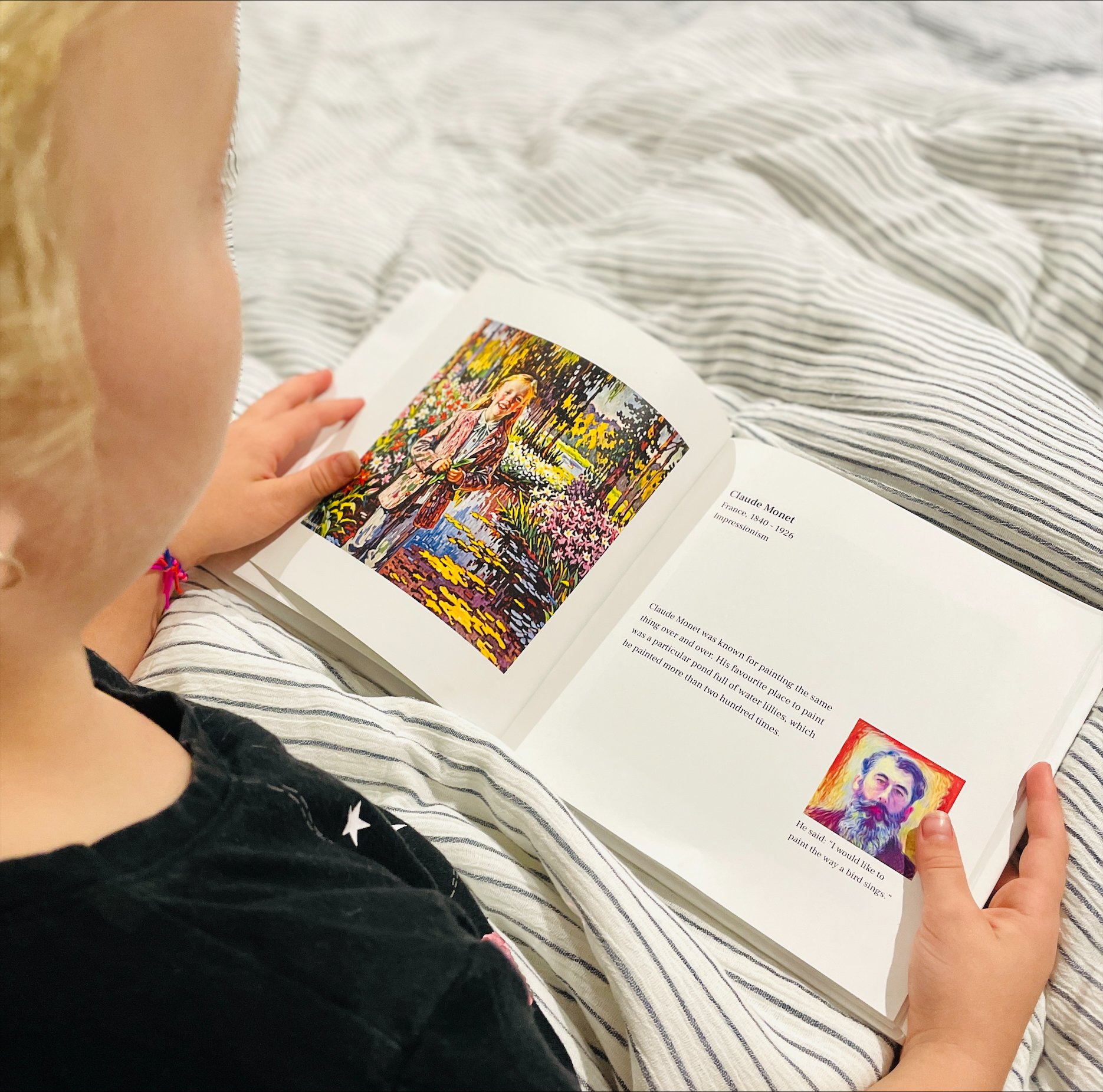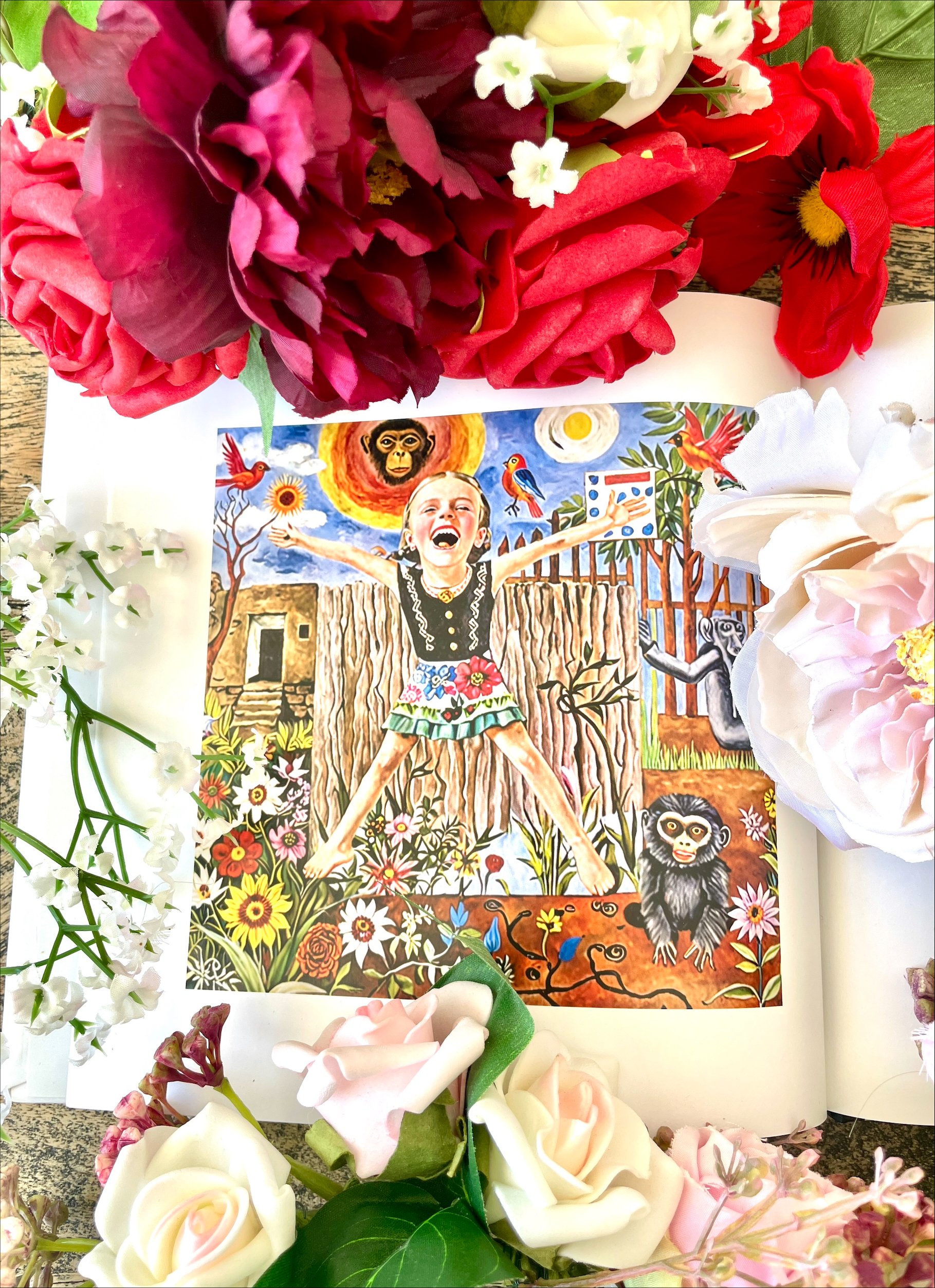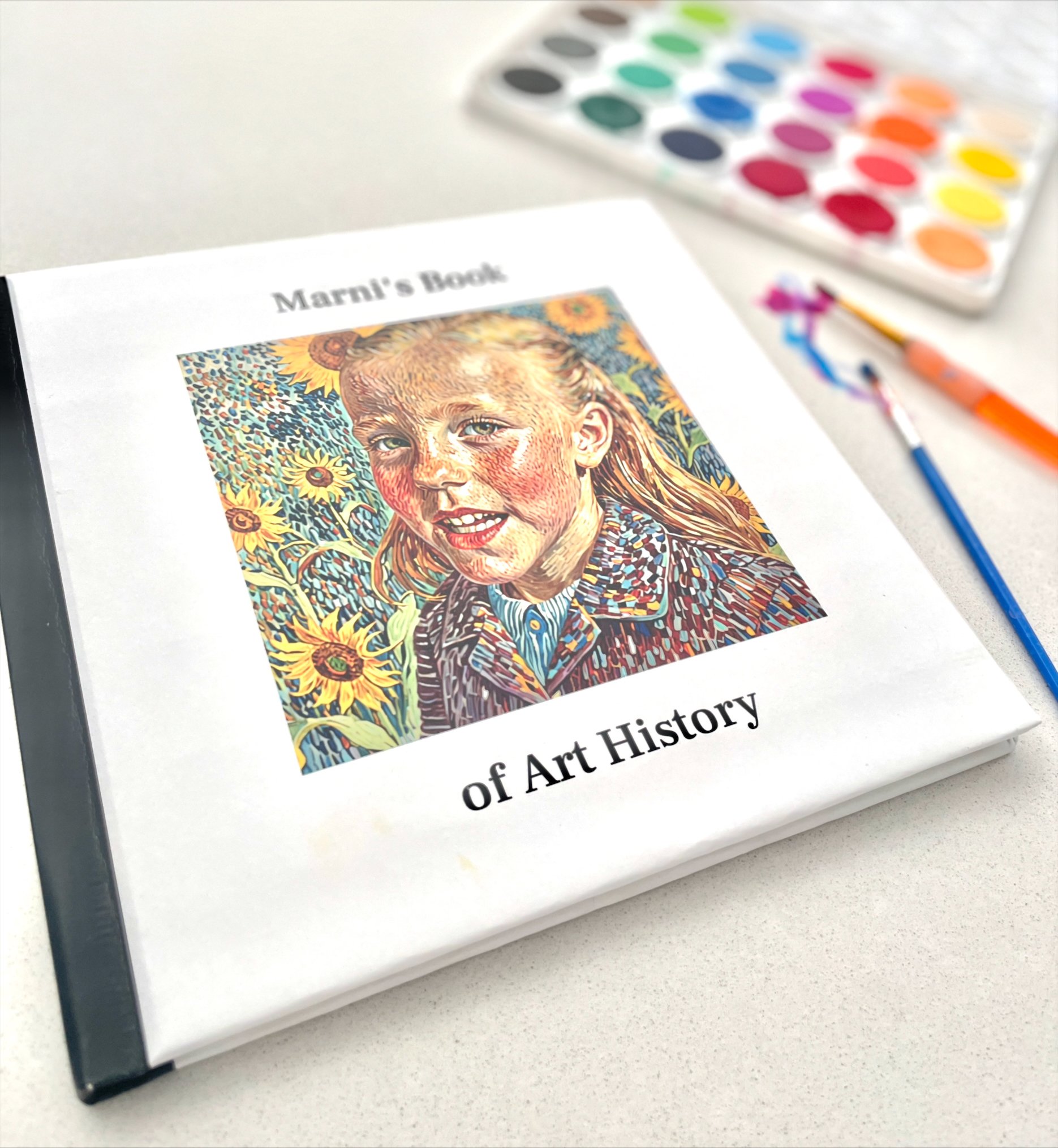The Importance of Reading Non-Fiction Books to Kids
/marni reading her personalised book from selfarama
Bedtime stories are one of the most magical times of day at our house. My little people are all warm, snuggly and calm after their bath. We bundle up together in bed and read or story (or three) to round out our day. As a busy mum, story time is wonderful because it’s a moment of peace in our hustle-bustle life…but as an author and psychologist I love story time for more than just its opportunity for connection and relationship building.
In the world of child development, stories are powerful and a well-recognised tool for learning. When we think story-time we evoke memories of fairy tales, make believe and even some fables with good moral learnings thrown in. Fiction often takes the spotlight in children's literature (often due to a grown-ups own reading preference or simply what is available). But did you know the unique place than non-fiction books hold in a child’s social and cognitive development?
Marni’s book of art history
Non-fiction books support child development
“Hold it!” I can hear you say “But non-fiction books are textbooks, facts about the world” and many people assume this equates to being “boring”. Also many grown-ups have a misconception about the reading preferences of their children, but did you know research has shown that very large proportions of children want to read non – fiction books? One study found that 40% students from grades 1 to 6 who were given a choice of books selected non-fiction. And this may be even more pronounced in younger children – with another study finding that a whopping 80% of 1st graders opted for non-fiction stories when given a choice.
So, in addition to being sought after by kids themselves why are non-fiction stories so important for our children’s development?
marni represented in the style of frida kahlo
The Role of Non-Fiction in Cognitive Development
Many children experience something called the “Fourth Grade Slump”, this is when their reading journey changes from “learning to read” to “reading to learn” and suddenly they go from creative stories that use images, characters, settings and plots to communicate a story. They are also use different types of language to engage readers as opposed to informational or non-fiction texts. A non-fiction book’s primary purpose is to convey factual information and it introduces children to the real world in ways that fiction cannot. If a child hasn’t been exposed to non-fiction stories before this shifting skill set can result in them struggling or being left behind in school (hence the nickname the “Fourth Grade Slump”).
Being able to navigate and absorb information in non-fiction books helps our little people with skills they will require in later education and improves their opportunities for academic achievement. In addition, this factual information about history, nature, science, different cultures and religions can also instil a sense of curiosity, a love of learning and helps our kids learn how to differentiate between fact and fiction – a critical skill in our modern world where they are inundated with information and must learn how to discern the truth!
marni loved seeing herself in this book - and i loved the opportunity for some sneaky learning!
Want your child to be the next Einstein, Marie Curie or Cathy Freeman?
In addition to the academic benefits, social learning theories (we learn through observing, modelling and imitating what we see) suggest that when children read non-fiction stories, they gain role models. They learn about real life people (inventors, adventurers, scientists, athletes etc) and can come to understand and personalise these stories which provides them with a model for behaviour or activities to copy!
A non-fiction story not only feeds your child’s brain, but they are simultaneously learning how to ask the right questions, find answers and solidify their knowledge, encourage independent learning and gives them wonderful role models to emulate…win win!
So how can you encourage your child to pick up a non-fiction book?
Let’s look at some ways you can promote reading of non-fiction stories in your household:
1. Observation my dear Watson - Firstly, social learning theories mean that your child learns a lot from simply observing and imitating…so what kinds of books do you read? Let them see you reading a wide range of books.
2. Encourage independent learning – if your child has a question, instead of simply answering it you can help develop their thirst for knowledge but also skills to wade through the “fiction” to find the “fact”. You can do this by getting them to ask the question and figure out topics or sub topics and then find some age-appropriate books on the subject for them to read.
3. Diversity – give them a choice of books to select from at home and school. If a range of books are available then they have more of an opportunity to explore non-fiction in a no pressure way
4. Make it relatable – if your child is into mermaids…great! Find them some non-fiction books on the ocean, or history of pirates. Your child loves space? Wonderful! Get them some books on planets, space travel or astronauts.
5. Connect it to their real life – does your family celebrate certain traditions, or have they heard a friend talk about a certain religious holiday? That’s a perfect opportunity to do a little fact finding and explore a new subject.
the best way we can encourage reading - is to read with our kids often, but also to let them see us reading!
Personalise Children’s Stories
Did you know that children learn better when they can connect with content on a personal level. This is why fiction books can be so effective at teaching our children about morals, or social behaviours (sharing, emotional regulation and more). However, non-fiction stories (which were typically dry and dusty) have been having a bit of a “makeover” in recent times and have started incorporating some of these fiction strategies for engaging kids. Often called “narrative non-fiction”, these books outline real people and real events, which provides a chance for your child to connect and relate to, and therefore see themselves in these stories in a more meaningful way.
But what if your child could actually “be” in a non-fiction story?
I was recently gifted a delightful book from Tom at Selfarama which used AI to incorporate a photo of my 7-year-old daughter Marni into the pages of an art history non-fiction book. When the post arrived (addressed to Marni herself no less – and what kid doesn’t love post?) she was so shocked to see herself on the front cover. Now any parent I know loves a few moments of peace…and that’s what I got for at least 1 hour after she opened her book. First the ego-centric part of her made her scour the book for a lengthy amount of time while she admired herself (yes my darling, that is you on every page). But then, without any prompting she scuttled off and grabbed her watercolours and painted herself in one of the blank pages (specifically left to encourage our little people to get creative). She then came and told me all about her painting, and I asked which art style she had used to inspire her…she flicked through the book and showed me the hyper-realism of Lucian Freud and shared that she had even chosen her colours to look most like his paintings. She was curious about why there was a dog in the picture and so we did some investigating and found out that he often painted dogs, and sometimes cats into his works.
The book was such a great introductory non-fiction text. Not only could Marni directly connect herself to the information, but it prompted independent learning…the whole point, and benefit of non-fiction stories. Now my only question is…what’s up next for Selfarama and when can I get me hands on it? Its certainly ignited a love of non-fiction in our household that I'm keen to promote!
I’d love to know your favourite non-fiction stories you read with your tiny human? Or, has this given you a nudge to add some non-fiction to your “to be read” pile?
the personalised art work is standout! marni loved seeing herself in this book
References
Doiron, R. (2003). Boy books, girls, books: Should we re-organize our school library collections? Teacher Librarian, 30, 14-17.
Mohr, K. A. J. (2006). Children’s Choices for Recreational Reading: A Three-Part Investigation of Selection Preferences, Rationales, and Processes. Journal of Literacy Research, 38(1), 81-104. https://doi.org/10.1207/s15548430jlr3801_4
The use of nonfiction with early childhood aged children (uni.edu)
marni got the paints out for her very own masterpiece soon after reading her book

